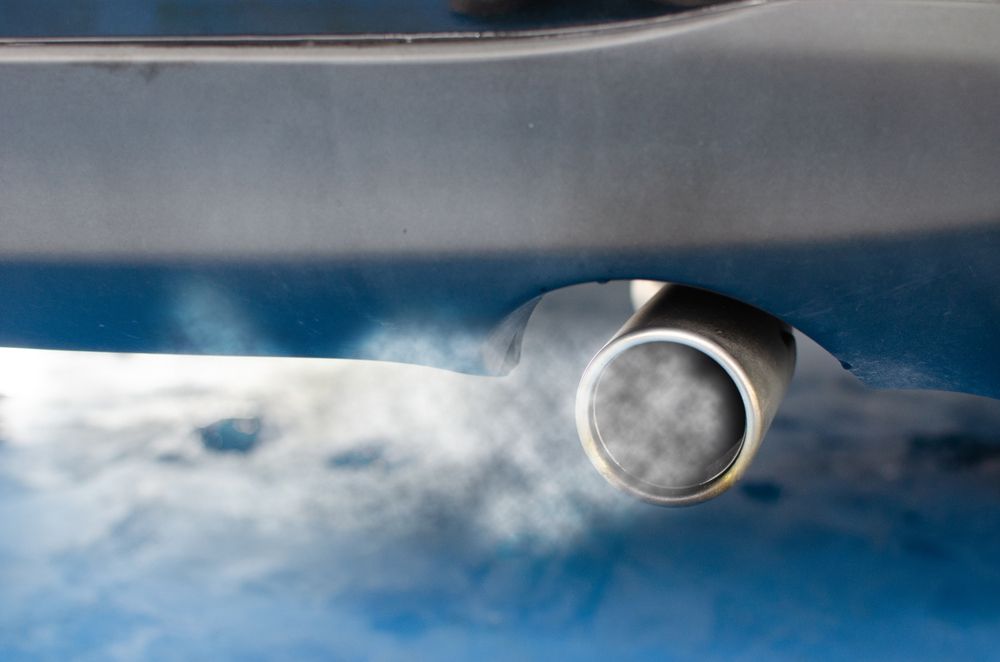Cancer Research UK-funded scientists at the Francis Crick Institute and UCL have revealed how air pollution can cause lung cancer in people who have never smoked.
Led by Professor Charles Swanton, the research found that exposure to particulate matter (PM2.5) in the air promotes the growth of cells in the lungs which carry cancer-causing mutations.
Examining data from over 400,000 people, the scientists also found higher rates of other types of cancer in areas with high levels of PM2.5. They speculate that air pollution could promote the growth of cells carrying cancer-causing mutations elsewhere in the body.
The research was presented by Professor Swanton at the ESMO Congress on 10 September. The research is part of the TRACERx Lung Study, a £14 million programme funded by Cancer Research UK to understand how lung cancer starts and evolves over time, in the hope of finding new treatments for the disease.
Although smoking remains the biggest risk factor for lung cancer, outdoor air pollution causes roughly one in 10 cases of lung cancer in the UK. An estimated 6,000 people who have never smoked die of lung cancer every year in the UK, some of which may be due to air pollution exposure. Globally, around 300,000 lung cancer deaths in 2019 were attributed to exposure to PM2.5.
Lead investigator for the TRACERx Lung study at the Francis Crick Institute and UCL and Cancer Research UK Chief Clinician, Professor Charles Swanton, said: “Our study has fundamentally changed how we view lung cancer in people who have never smoked. Cells with cancer-causing mutations accumulate naturally as we age, but they are normally inactive. We’ve demonstrated that air pollution wakes these cells up in the lungs, encouraging them to grow and potentially form tumours.
“The mechanism we’ve identified could ultimately help us to find better ways to prevent and treat lung cancer in never smokers. If we can stop cells from growing in response to air pollution, we can reduce the risk of lung cancer.”
Air pollution has been linked to variety of health problems, including asthma, chronic obstructive pulmonary disease (COPD), heart disease and dementia. But how it causes cancer to start in people who have never smoked has been a mystery up to now.
Many environmental agents, such as UV light and tobacco smoke, cause damage to the structure of DNA, creating mutations which cause cancer to start and grow. But no evidence could be found that air pollution directly mutates DNA, so scientists looked for a different explanation.
They investigated the theory that PM2.5, tiny particles around 3% of the width of a human hair, causes inflammation in the lungs which can lead to cancer. Inflammation wakes up normally inactive cells in the lungs which carry cancer-causing mutations. The combination of cancer-causing mutations and inflammation can trigger these cells to grow uncontrollably, forming tumours.
The scientists examined a type of lung cancer called epidermal growth factor receptor (EGFR) mutant lung cancer. Mutations in the EGFR gene are commonly found in lung cancer in people who have never smoked.
They examined data taken from over 400,000 people from the UK and Asian countries, comparing rates of EGFR mutant lung cancer in areas with different levels of PM2.5 pollution. They found higher rates of EGFR mutant lung cancer, as well as higher rates of other types of cancer, in people living in areas with higher levels of PM2.5 pollution.
Co-first author and postdoctoral researcher at the Francis Crick Institute and UCL, Dr Emilia Lim, said: “According to our analysis, increasing air pollution levels increases the risk of lung cancer, mesothelioma and cancers of the mouth and throat. This finding suggests a broader role for cancers caused by inflammation triggered by a carcinogen like air pollution.
“Even small changes in air pollution levels can affect human health. 99% of the world’s population lives in areas which exceed annual WHO limits for PM2.5, underlining the public health challenges posed by air pollution across the globe.”
The research team think that the model presented in their study could be responsible for the early stages of many different types of cancer, where environmental triggers awaken cells carrying cancer-causing mutations in different parts of the body.
Co-first author and postdoctoral researcher at the Francis Crick Institute, Dr William Hill, said: “Air pollution needs to wake up the right cells, at the right time, for lung cancer to start and grow.
“EGFR mutations are an essential step towards cancer forming, but they are rare, affecting around 1 in 600,000 cells in the lung. These rare cells are dormant until a trigger, such as air pollution, causes them to start growing. The mechanism we’ve identified may explain why there is an increased risk of cancer from air pollution, but the risk is much lower compared to smoking, which mutates DNA directly.
“Finding ways to block or reduce inflammation caused by air pollution would go a long way to reducing the risk of lung cancer in people who have never smoked, as well as urgently reducing people’s overall exposure to air pollution.”
Cancer Research UK’s Chief Executive, Michelle Mitchell, said: “These findings demonstrate that discovery science, which takes years of painstaking work, is changing our thinking around how cancer develops. Thanks to this research, we now have a much better understanding of the driving forces behind lung cancer in people who have never smoked.
“Only by improving our fundamental understanding of the biology of lung cancer will we be able to offer better diagnosis and treatment, regardless of whether someone’s lung cancer is caused by smoking, air pollution or something else.”
Image courtesy of Shutterstock.












